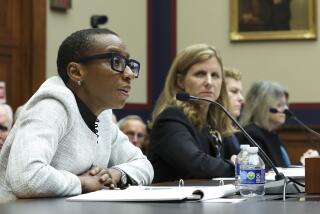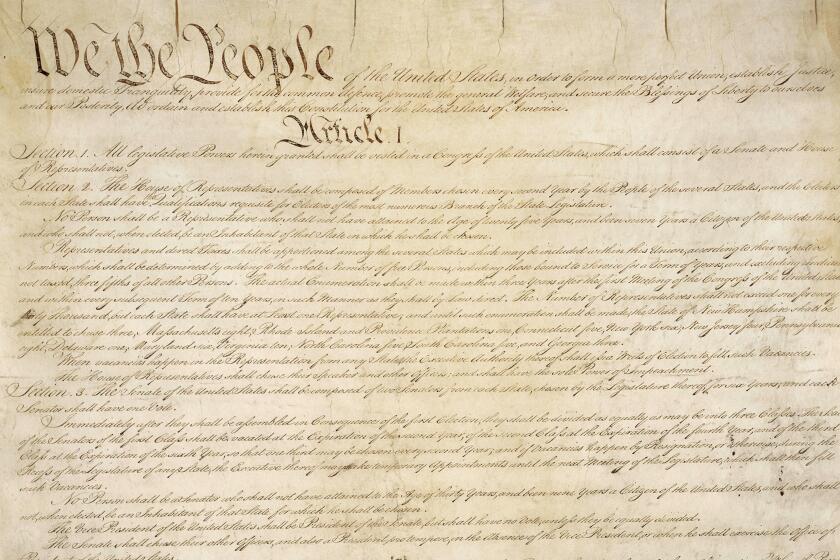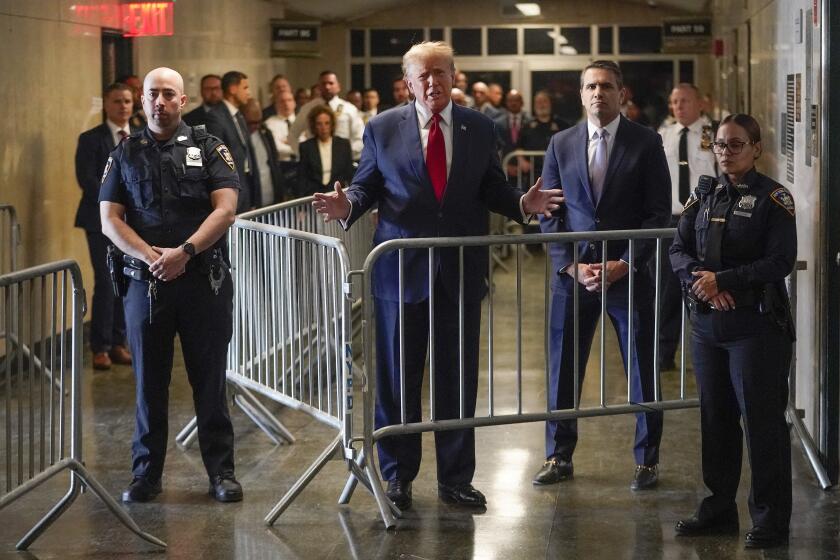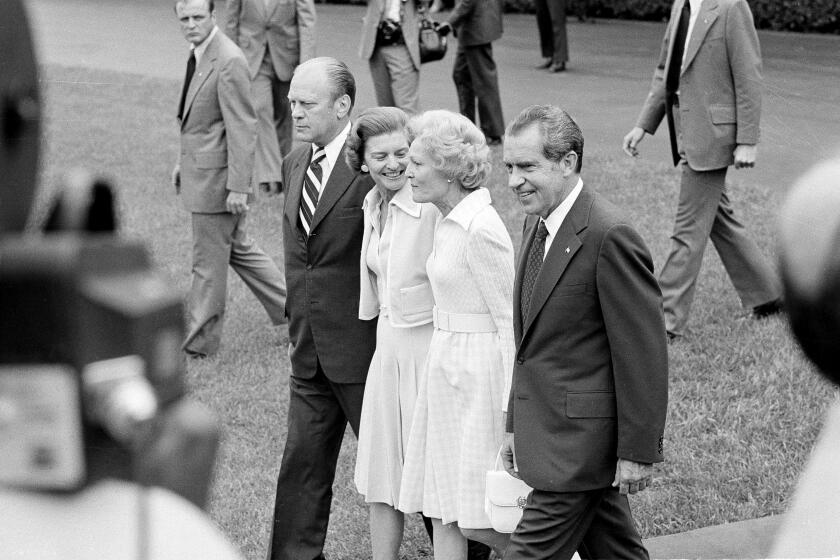Op-Ed: Can we care about terrorism and campus activism at the same time?
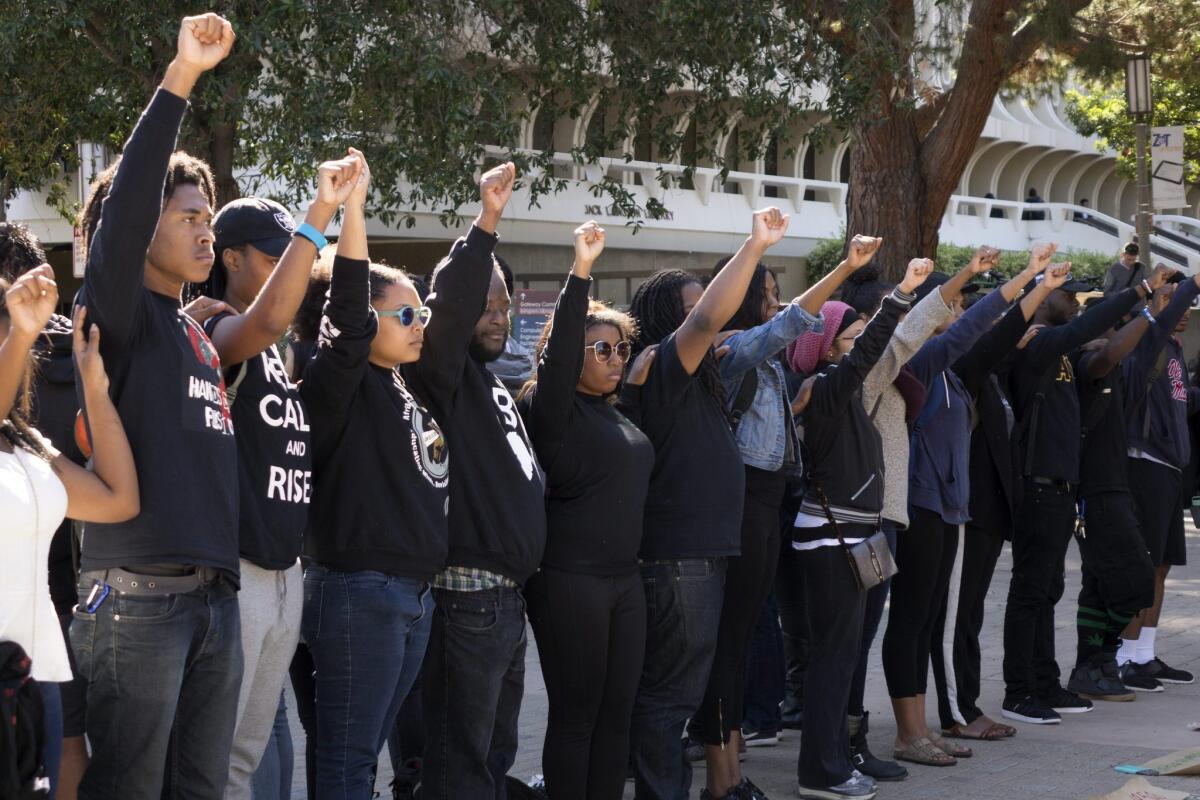
University of California, Irvine students raise their fists in solidarity with the University of Missouri demonstrations, in Irvine on November 12.
After an international tragedy like the terrorist acts in Paris last week, we perform a relatively new social media ritual: We attempt to collectively rank the importance of various injustices. Some of us are outraged that attacks in Western Europe have garnered more attention than similar violence in North Africa and the Middle East. Or, enraged by posts we see as merely mundane complaints — the usual kvetching about long airport lines or poor restaurant service — we remind everyone that terrorism matters most. Nous sommes unis. Facebook’s “What’s on your mind?” prompt becomes a temptation to critique your news feed and offer your opinions on exactly which topics others should and should not be posting about.
These days, the battle to control the narrative happens in real time, and it involves anyone with a social media account.
There are as many reactions to a large-scale news event as there are individuals witnessing it unfold. But these days, the battle to control the narrative happens in real time, and it involves anyone with a social media account. In the wake of the Paris attacks, many people invested in the Black Lives Matter movement took to Twitter to voice concerns that social justice activism in the United States, including recent campus protests against systemic racism at the University of Missouri and Yale, would be ignored now that all eyes were on Europe.
Conservative media seized on their tweets as evidence that they did not care about the victims in Paris. “Liberal Activists Upset Paris Terrorist Attacks Are Getting Attention, Not Mizzou Protests,” according to the Daily Caller. There was a similar article on Breitbart.com. Yet those snarky responses missed the point that many of the activists were making: It’s possible to care about issues both domestic and international, immediate and long term. We can multitask.
“There is no rank order to injustice,” tweeted Black Lives Matter activist Deray McKesson.
It may be a little gauche to discuss a substandard doughnut at a time when hundreds are mourning their lost loved ones, but social justice activism is hardly that. Even in our outrage-saturated age, people are capable of caring about many wrongs at the same time. I do this every day. I read reports of terrorist attacks abroad, and then a critical review of a TV show, and then dispatches from campus protests, and then a personal essay about sexism in media. I’m able to take all of this in without organizing it into a hierarchy.
Just because a bad TV show or a sexist editor never killed anyone doesn’t mean we should never discuss these things. The fact that people died in Paris last week but not at Mizzou does not mean one of these events is worthy of all our attention and the other none.
Besides, systemic racism is a life-or-death problem — if you’re not white. The University of Missouri protesters are drawing attention to a history of racial injustice that stretches from the university’s founding in 1839 to this year, when white students shouted racial and anti-gay slurs at the student body president and a dormitory wall was vandalized with a swastika smeared in human feces. Traffic stops that quickly turn violent, graffiti designed to stoke fear and casually uttered racial epithets only seem like minor inconveniences if you’ve never found yourself on the receiving end.
Unlike terrorism in Paris, the injustices being protested by the Black Lives Matter movement and campus activists are so old and deep they seem humdrum, and they usually don’t play out as one dramatic news event with dozens of casualties. (The Charleston, S.C., church shooting is a notable recent exception). As a result, many people who have never experienced racism firsthand refuse to see it as significant, and become outraged when others keep talking about it, even as the global conversation is pulled in another direction.
The activists insisting we not forget daily injustices at home, not even for a minute, are, then, right to be concerned that a headline-dominating tragedy like the Paris attacks could usurp the mainstream media attention they’ve fought so hard to gain. Civil rights advocates are well aware of how difficult it is to bring widespread attention to long-simmering problems, and how quickly that attention can evaporate.
As we collectively figure out how to respond to dramatic, single-day events like terrorist attacks, we must also continue talking about how to remedy problems that are long term and cumulative, such as racism. We are not only capable of multitasking, we are obligated to.
Ann Friedman is a contributing writer to Opinion.
Follow the Opinion section on Twitter @latimesopinion and Facebook
More to Read
A cure for the common opinion
Get thought-provoking perspectives with our weekly newsletter.
You may occasionally receive promotional content from the Los Angeles Times.


